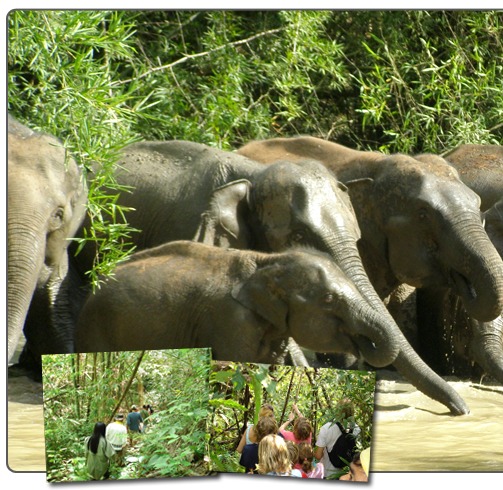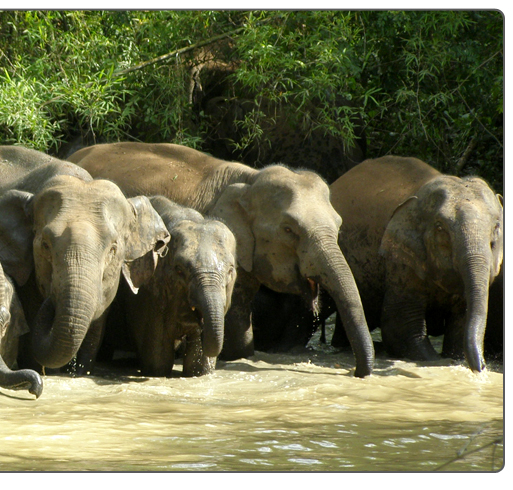Jungle trekking in the protected forest which is home to Asian elephants adds to excitements and enhances your appreciation towards the whole ecosystem of nature. During the trip, learn from the experienced ranger how important elephants are for the forest ecosystem and challenges facing the elephant conservation in Thailand. Thereafter, have a good fun with elephant ride and bamboo rafting along the historical River Kwai. Fulfill your trip by a spiritual train journey on the famous Death Railway running in parallel with the dramatic river that provides the impressive view of the River Kwai stretch.
Itinerary
09.00 |
Pick up from hotels in Kanchanaburi town and proceed to the wildlife sanctuary (45 minute drive). En route enjoy the picturesque scenery along the River Kwai with its magnificent limestone mountains backdrop. |
10.00 |
Upon arrival, start a nature walk into the bamboo forest (about 3 kms. walk). Learn about the most preferable forest type where the elephants live, vegetations they eat in the wild and other
supplementary food such as mineral licks and also their behaviors related to seasonal and climate changes. Fun-based learning activities about the elephant in the outdoor classroom proves
enjoyable for most visitors. |
12.30 |
Enjoy picnic lunch in the natural surrounding. |
13.15 |
After Lunch, continue to the elephant camp by the River Kwai. |
14.15 |
Be excited with soft adventures on the elephant back and then bamboo rafting. |
15.40 |
Enjoy a train journey from Wang Poh to Tha Kilaen stations along the historical Death Railway running in parallel with the well known River Kwai. |
16.40 |
Arrive Tha Kilaen station, pick up and proceed to Kanchanaburi town. |
17.30 |
Upon arrival, transfer to the accommodation in KAN. |
Included:
1. Transfer by car from hotels in Kanchanaburi
2. Entrance fee
3. Lunch
4. Nature trek, elephant riding and bamboo rafting
5. Train journey
6. Drinking water, cool towels, coffee or tea, and snacks
7. English-speaking guide
8. Insurance [Bt.1,000,000 per head]
9. Donation to support the forest protection and conservation management of the sanctuary













